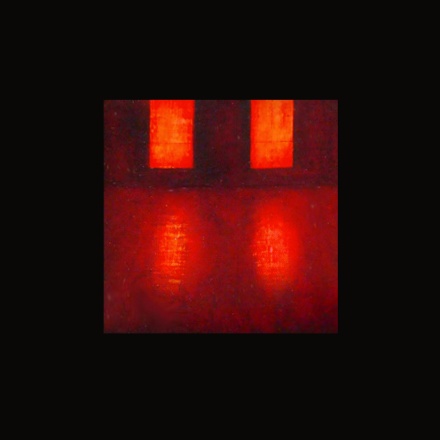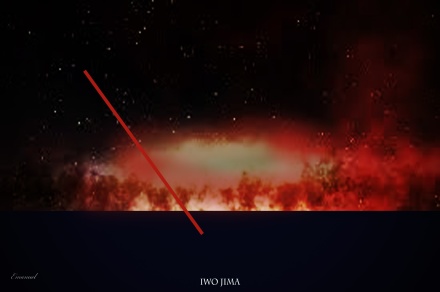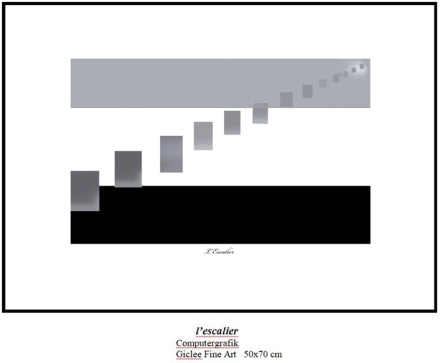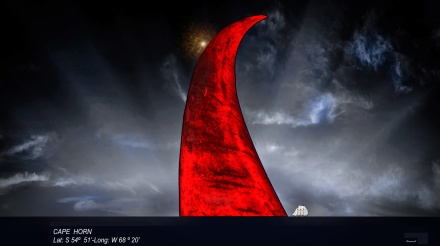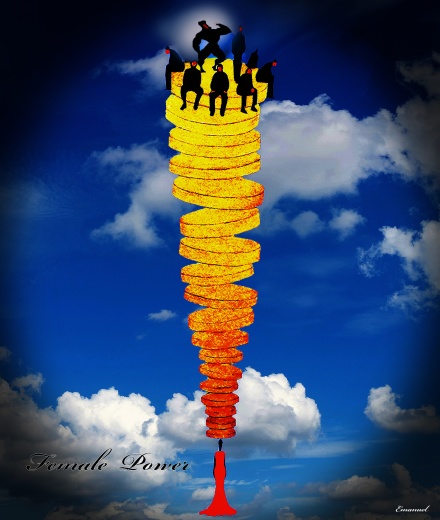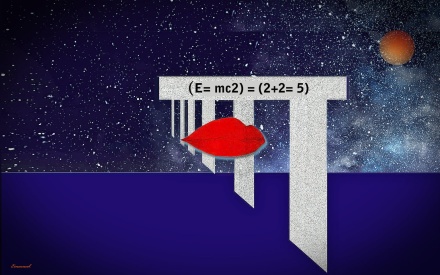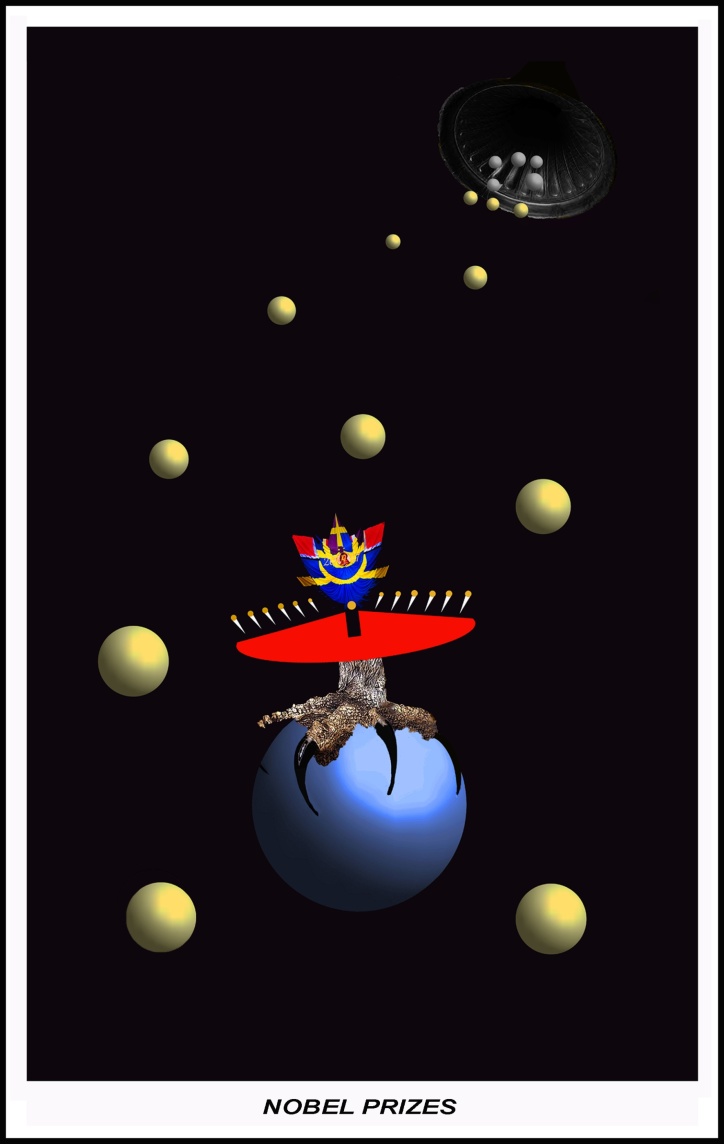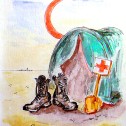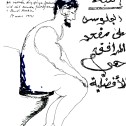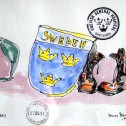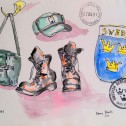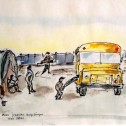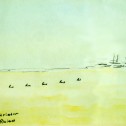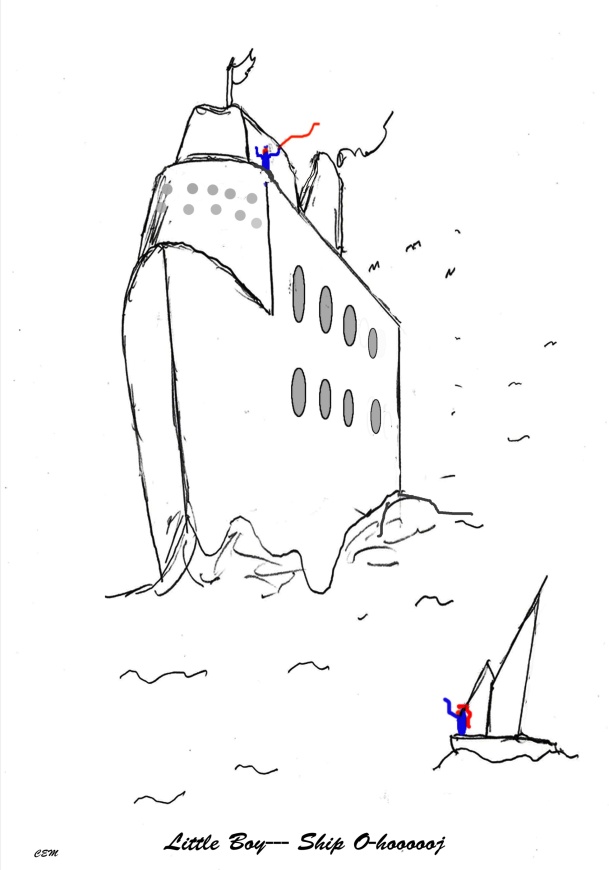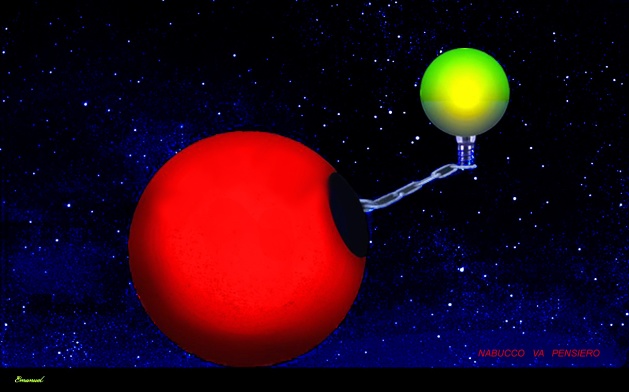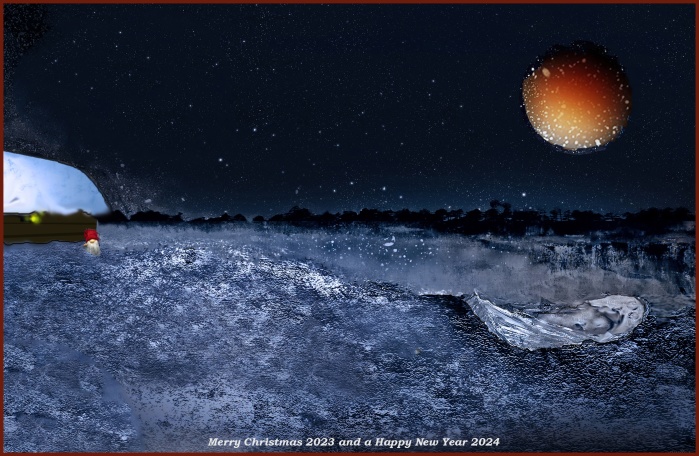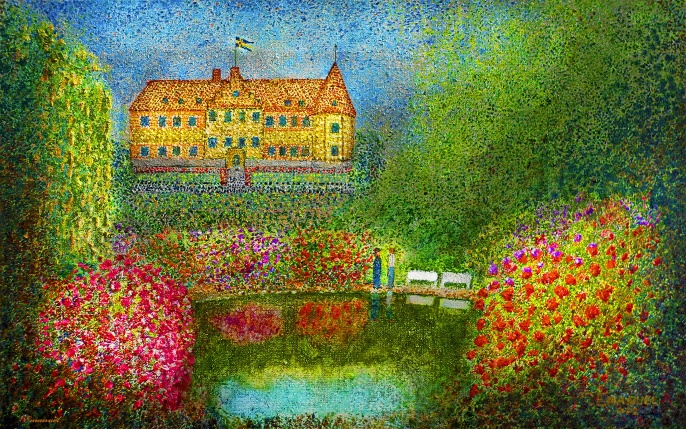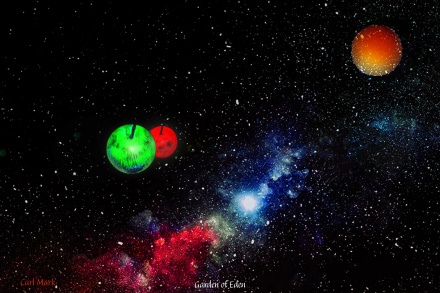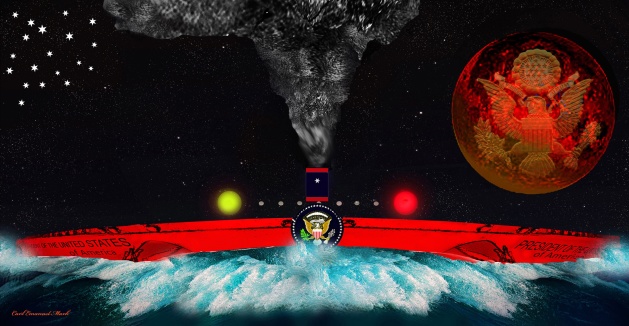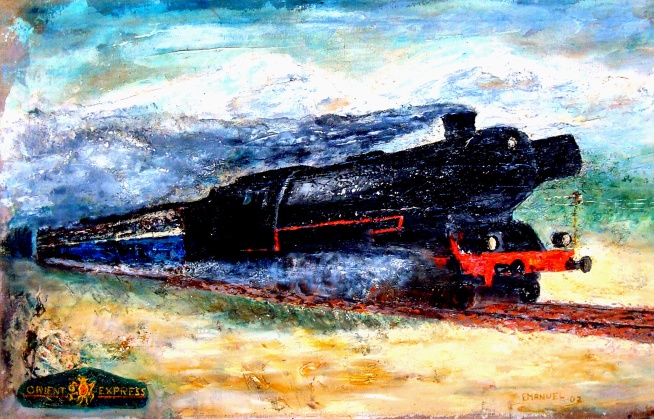A few exhibitions
Galérie Etienne de Causans Paris 2023
Salon d'Automne Paris 2019,-20,-21 Digital
Art
Capital Grand Palais Paris 2012,-13,-14,-15,-17,- 18,-20,-22
Huntenkunst Ulft Netherlands 2018,-19,-23
U-BOOTS BASE Kilian Flandernbunker Kiel Germany 2014
Galerie Mona Lisa Paris 2014
Museum New Art Pernuu Estonia 2012
Art Hall Kalmar Sweden 2011
Represented at Swedish Armed Forces Museum Stockholm Sweden
--------------------------------------------------------------------------------------------
Ba ba little lamb
"Bä, bä, vita lamm" is a popular Swedish children's song from the 19th century with origins that remain unknown. It is based on the English nursery rhyme "Baa, Baa, Black Sheep," first published in 1744, and shares both its melody and themes, though with unique textual variations. The song has undergone adaptations over time, both in Sweden and internationally.
Ba ba little lamb
do you have same wool?
Yea yea pretty child,
my whole bag is full.
A handsome coat for Dad,
a Sunday shirt for Mum,
and two pair of socks for my little brother Sam.
………………………………………………………………………..
Bä, bä, vita lamm
"Bä, bä, vita lamm" är en populär svensk barnvisa från 1800-talet med okänt ursprung. Den baseras på den engelska visan "Baa, Baa, Black Sheep" från 1744 och delar melodi och tema med denna, men har unika textvariationer. Visan har anpassats över tid i både Sverige och internationellt.
Bä, bä vita lamm, har du någon ull?
Ja, ja, kära barn, jag har säcken full.
Helgdagsrock åt far
och söndagskjol åt mor
Och två par strumpor åt lille lille bror.
Ida wanders alone through the verdant forest, her cheeks rosy and her eyes glistening like rays of sunlight. On her lips, a hint of blueberries from the basket she carries. She yearns for company on her walk and suddenly a "Brummelibrum" is heard. It's not a dog that shuffles forward, but a bear with shaggy fur. Ida smiles and extends the basket. "Hello, would you like a taste?" The bear hungrily devours the blueberries, and Ida laughs. "You seem to really like berries!" There, in the forest, amidst the rustling leaves, Ida finds an unexpected friendship in the bear's silent gratitude.
Lilla Ida
Ida vandrar ensam genom den grönskande skogen, kinderna rosiga och ögonen skimrande som solstrålar. På hennes läppar, en skymt av blåbär från korgen hon bär. Hon önskar sällskap på sin vandring och plötsligt hörs ett "Brummelibrum". Det är inte en hund som lufsar fram, utan en björn med lurvig päls. Ida ler och sträcker fram korgen. "Hej, vill du smaka?" Björnen mumsar i sig blåbären, och Ida skrattar. "Du gillar visst bär!" Där i skogen, bland susande löv, finner Ida en oväntad vänskap i björnens tysta tack.
........................................................................
"Die kleine Ida"
Ida wandert allein durch den üppigen Wald, ihre Wangen rosig und ihre Augen glänzen wie Sonnenstrahlen. Auf ihren Lippen, ein Hauch von Blaubeeren aus dem Korb, den sie trägt. Sie wünscht sich Begleitung auf ihrem Weg und plötzlich hört man ein "Brummelibrum". Es ist kein Hund, der sich nähert, sondern ein Bär mit struppigem Fell. Ida lächelt und streckt den Korb vor. "Hallo, möchtest du kosten?" Der Bär nascht die Blaubeeren und Ida lacht. "Du scheinst Beeren wirklich zu mögen!" Dort im Wald, zwischen rauschenden Blättern, findet Ida in dem stillen Dank des Bären eine unerwartete Freundschaft.
"The Blue Anemone"
A children's song from late 19th-century Sweden by Alice Tegnér
The blue anemone within the hills doth stand, Bows and whispers, “Now the spring is at hand.” Children, they gather the small blossoms, so blithe, Rushing back home amid cheers and joyful strife. “Mother, the spring has come, hear us implore, No need for shoes or stockings anymore.” Blue anemones within the hills reside, Bare of shoes or socks, they stand in their pride. Mother in the cottage, wisely does say: “Anemones cold do not betray. Still wear your socks, and your shoes must stay, For winter yet lingers, as mother will say.”
”Blåsippan”
Barnvisa från Sverige från sent 1800-tal av Alice Tegner
Blåsippan ute i backarna står,
niger och säger att nu är det vår.
Barnen de plocka små sipporna glatt,
rusa sen hem under rop och skratt.
Mor, nu är våren kommen, mor
Nu får vi gå utan strumpor och skor.
Blåsippor ute i backarna stå,
har varken skor eller strumpor på.
Mor i stugan, hon säger så:
– Blåsippor aldrig snuva få.
Än få ni gå med strumpor och skor,
än är det vinter kvar, säjer mor.
Maja's Song (When the Little One Arrived on Earth)
Upon the little one's arrival on earth, It was in May, when the cuckoo called, Mother proclaimed it radiated With verdant spring and sun's embrace. The lake shimmered as if silver, The cherry tree blossomed in full, And the swallow, lively and joyful, Arrived with the spring in tow. The cowslip’s plume gently swayed, The chaffinch sang with cheerful notes, That's when I was christened Maja, For the little one, indeed, was I. And hence, mother declares, I am nearly always in good spirits, Perceiving life in its entirety As akin to a day bathed in sunlight.
"Maja's Song, which begins with the lines 'When Lillan came to earth,' is a children's song and springtime melody from 1897 with lyrics and music by Alice Tegnér. The song was first published in 'Sing with us, Mommy! 4' and later also in 'Now We Shall Sing, 1943,' under the heading 'The Seasons'."
Majas visa (När lillan kom till jorden) När lillan kom till jorden, det var i maj, när göken gol, sa mamma att det lyste av vårgrönt och av sol. Sjön glittrade som silver, och körsbärsträdet stod i blom, och svalan kvick och munter just hit med våren kom. Gullvivans plym sågs vaja, bofinken slog så glada slag, då blev jag döpt till Maja, ty lillan, det var jag. Och därför, säger mamma, så är jag nästan alltid glad, jag tycker hela livet är som en solskensdag.
Majas visa, med inledningsorden När Lillan kom till jorden, är en barnvisa och vårsång från 1897 med text och musik av Alice Tegnér. Sången publicerades första gången i Sjung med oss, Mamma! 4 och senare även i Nu ska vi sjunga, 1943, under rubriken "Årstiderna".
...................................................................
Mother's little Olle went into the woods
- roses on his cheeks and sunshine in his looks. Lips stained with berries, blue as can be, if only I didn't have to walk here alone!
Rumble and rustle, who's there in the glen? The bushes are shaking. A dog, I reckon... Furry and friendly, Olle feels glad: Oh, a companion, that's truly not bad!
He pets the bear with his small, gentle hands, offers the basket: "Here, have a taste and understand!" The bear gobbles up almost everything there: Listen, I think you're quite fond of berries, I swear.
Mother catches sight, lets out a shriek. The bear scampers off, the game's at its peak. Oh, why did you scare away my friend? Mother dear, ask him to come back again!
A cherished Swedish children's song by Alice Tegnér, around 1895.
………………………………………………………………………….
Mors lilla Olle i skogen gick,
rosor på kinden och solsken i blick. Läpparna små utav bär äro blå, bara jag slapp att så ensam här gå! Brummelibrum, vem lufsar där? Buskarna knaka. En hund visst det är… Lurvig är pälsen, men Olle blir glad: Åh, en kamrat, det var bra se god dag! Klappar så björnen med händer små, räcker fram korgen: Se där, smaka på! Nalle, han slukar mest allt vad där är: Hör du, jag tror, att du tycker om bär. Mor fick nu se dem, gav till ett skri. Björnen sprang bort, nu är leken förbi. Å, varför skrämde du undan min vän? Mor lilla, be honom komma igen
Alice Tegnér, runt 1895.
Santa takes a Christmas holiday.
Santa has parked his sleigh and traded snowflakes for spotlights in Barcelona's vibrant nightlife. Alongside his flamenco-dancing companion, he glides across the dance floor, where the beats of jingle bells have faded away, replaced by the rhythms of disco. Bathed in the glow of shimmering disco balls, the concept of Christmas gifts becomes a distant memory, and the evening is instead filled with passion. It's an enchanting holiday respite where the chill of the north gives way to the warmth and brilliance of the dance.
Jultomten tar Julsemester
Jultomten har parkerat släden och byter snöflingor mot strålkastare i Barcelonas nattliv. Med sin flamencodansande följeslagare glider han över dansgolvet, där takterna från jingle bells är som bortblåsta och ersatta av discorytmer. I skenet från glittrande discokulor blir julklappar ett minne blott, och istället fylls kvällen med passion. En förtrollande julvila där nordisk kyla viker för dansens hetta och stjärnglans.
Der Weihnachtsmann nimmt Weihnachtsurlaub.
Der Weihnachtsmann hat seinen Schlitten geparkt und tauscht Schneeflocken gegen Scheinwerferlicht im pulsierenden Nachtleben Barcelonas. An der Seite seiner flamencotanzenden Begleitung gleitet er über die Tanzfläche, wo die Takte von "Jingle Bells" verklungen sind, ersetzt durch die Rhythmen der Disco. Im Glanz der schimmernden Discokugeln wird das Konzept von Weihnachtsgeschenken zur fernen Erinnerung, und der Abend ist stattdessen erfüllt mit Leidenschaft. Es ist eine bezaubernde Ferienauszeit, in der die Kälte des Nordens der Wärme und dem Glanz des Tanzes weicht.
Papá Noel en Vacaciones de Navidad
Papá Noel ha aparcado su trineo y cambiado los copos de nieve por los focos de la vibrante vida nocturna de Barcelona. Junto a su compañera, aficionada al flamenco, se desliza por la pista de baile, donde los compases de "Jingle Bells" han dado paso a los ritmos de la discoteca. Bañados por el brillo de las bolas de discoteca, el concepto de los regalos navideños se convierte en un recuerdo lejano, y la noche se llena en su lugar de pasión. Es un encantador respiro navideño, donde el frío del norte cede ante el calor y el esplendor del baile.
Le Père Noël en Vacances de Noël
Le Père Noël a garé son traîneau et échangé les flocons de neige contre les projecteurs de la vie nocturne animée de Barcelone. Aux côtés de sa compagne passionnée de flamenco, il glisse sur la piste de danse où les airs de "Jingle Bells" ont cédé la place aux rythmes de la disco. Baignés dans l'éclat des boules à facettes, le concept des cadeaux de Noël devient un lointain souvenir, et la soirée est remplie de passion à la place. C'est une pause enchantée des fêtes où le froid du nord est remplacé par la chaleur et le brillant de la danse.
"Old man who preferably stays at home. He has seen the world and knows where it lies with all its houses and shacks, cars cars and people people endlessly."
Gammal man som helst sitter hemma. Han har sett världen och vet var den ligger med alla sina hus och kåkar, bilar bilar och människor människor i all oändlighet
"宁愿待在家里的老人。他见识过世
界,知道它在哪里,有所有的房子和棚屋,车车和人人无穷无尽。"
"Hombre mayor que prefiere quedarse en casa. Ha visto el mundo y sabe dónde está con todas sus casas y
chozas, coches coches y gente gente sin fin.
"家にいることを好む老人。彼は世界を見て、すべての家や小屋、車車、人々が果てしなく続くその場所を知っている。"
"رجل عجوز يفضل البقاء في المنزل. لقد رأى العالم ويعرف مكانه مع جميع منازله وأكواخه، سيارات سيارات والناس أناس لا نهاية لهم."
"Alter Mann, der vorzugsweise zu Hause bleibt. Er hat die Welt gesehen und weiß, wo sie liegt, mit all ihren Häusern und Hütten, Autos Autos und Menschen Menschen endlos."
"Vieil homme qui préfère rester à la maison. Il a vu le monde et sait où il se trouve avec toutes ses maisons et cabanes, voitures voitures et personnes personnes à l'infini."
NIMBUS
"Nimbus clouds are renowned for their dark, dense formations often accompanied by intense rainfall and thunderstorms. As Nimbus clouds move across the vastness of the sea, they engender a dramatic atmosphere. Bolts of lightning puncture through the dark clouds, illuminating the sky with their electric radiance. The thunder reverberates over the sea, creating an auditory backdrop of power and intensity. Torrential downpours ensue. These weather fluctuations over the sea give rise to dramatic natural forces, where electric energy and intense rainfall collaborate to produce an impressive and sometimes ominous spectacle. This piece is a product of my own experiences at sea during my youth. I employed Photoshop Elements in its creation, adhering to the principle that 'Simplicity is the ultimate sophistication' (Leonardo da Vinci). It's worth noting that AI played no role in this process."
Nobel Prizes
recognize outstanding achievements in physics, chemistry, medicine, literature, peace, and economics.
While prestigious, they are not absolute indicators of truth within their respective fields. The awards are presented in Stockholm on December 10th by His Majesty the King, except for the Peace Prize, which is awarded in Oslo, Norway
GEHTSEMANE
-is a park situated at the base of the Mount of Olives in Jerusalem, holding a pivotal role within Christian theology. It is renowned for capturing the profound and emotionally charged prayer of Jesus preceding his imminent crucifixion. In his human incarnation, Jesus undergoes intense anxiety in anticipation of the impending trial. Within his prayers, he articulates a fervent wish to avoid 'the bitter cup,' yet concurrently surrenders completely to God's will with the resolute declaration, 'Not my will, but let your will be done.' This underscores his unwavering obedience and sacrificial commitment to redeem humanity from its sins.
Gethsemane symbolizes the locale where the spiritual conflict between good and evil reaches its zenith. Jesus' triumph at this juncture serves as the catalyst for salvation, culminating in the suffering he later endures on the cross. The occurrences in Gethsemane also underscore the paramount significance of prayer, reflecting the theological concept of Jesus' dual nature –
both divine and human. This dual nature holds pivotal theological importance within Christianity and profoundly shapes the comprehension of salvation."
---------------------
"This piece is created by me. Oil on masonite, employing the technique known as Pointillism, where a vast number of dots come together to form a work with a light-sensitive shimmer. Please. note: Not MI.
THIS PICTURE IS MY ABSOLUTE FAVORITE ALL CATEGORIES IN AN EGOCENTRIC MEANINGLESS WORLD
In addition to losing his mother at a young age- the young graduate had odds stacked against him caused by high levels of poverty in his village.
There is nothing that parents can leave to their children that is more priceless than education.
The best gift parents can offer their children is to give them high chances for a better life in this world.
And the best reward-that children live up to their parents' aspiration. This story of a father and his son is a living testimony to that.
From's Nan Province, a poor farmer who had very little knowledge and resources to support his son and family worked as hard as he could to see his son become an educated and successful man.
Everything he earned through his sweating as a farmer long working days he spent on his son's education.
It finally paid off when his son graduated and he never forgot the most important person - his father.
A man who shed tears and sweat trying to uplift his life.
The father is a poor farmer of the marginalized Hmong tribe from the Nan Province of Thailand.
A man widowed by his wife after giving birth to the son, he spent years of his life working to provide his son everything he needs, especially to support his schooling. He even had to sell their meager belongings to pay for his son's education.
Never forget this story of a son and his incredible determination and sacrifice aimed at breaking the cycle of poverty in his family.
And A Poor Farmer Who Supported His Son To Finish His College - And On His Graduation Day, He Was Proud Saying His Father Is His Biggest Pride. [Credit: Nan Province of Thailand News]
SVENSKA
FAVORITBILD ALLA KATEGORIER
Som nyfödd förlorar pojken sin mor.
Allt är mycket fattigt.
Fadern är en oändligt kärleksfull fattig bonde av Hmong-stammen från Nanprovinsen i Thailand.
Fadern sliter hårt och försakar allt för att ge sonen utbildning och ett bättre liv samt att bryta fattigdomen hos familjen.
Sonen tar examen på universitet.
Pojken glömmer aldrig den viktigaste personen i sitt liv- sin far.
Utbildning är det bästa föräldrar kan ge sina barn
Belöningen är stor
Bilden är en berättelse i sig: glöm den inte!
[Credit: Nan Province of Thailand News]
DEUTSCH
LIEBLINGSBILD ALLER KATEGORIEN
Als Neugeborener verliert der Junge seine Mutter.
Alles ist sehr dürftig.
Der Vater ist ein unendlich liebevoller armer Bauer des Hmong-Stammes aus der Provinz Nan in Thailand.
Der Vater arbeitet hart und opfert alles, um seinem Sohn eine Ausbildung und ein besseres Leben zu ermöglichen und die Armut der Familie zu überwinden.
Der Sohn macht gerade seinen Universitätsabschluss.
Der Junge vergisst nie die wichtigste Person in seinem Leben – seinen Vater.
Bildung ist das Beste, was Eltern ihren Kindern geben können.
Die Belohnung ist großartig.
Das Bild ist eine Geschichte für sich: Vergessen Sie es nicht!
[Credit: Nan Province of Thailand News]
THAI
ภาพนี้เป็นภาพที่ฉันชื่นชอบมากที่สุดจากทุกหมวดหมู่
นอกเหนือจากการสูญเสียแม่ตั้งแต่อายุยังน้อยแล้ว บัณฑิตหนุ่มยังเจอปัญหาต่างๆที่รุมเร้า เนื่องจากความยากจนอันรุ่นแรงในหมู่บ้านของเขา
ไม่มีอะไรที่มีค่ามากกว่าการศึกษา ที่พ่อแม่สามารถทิ้งไว้ให้ลูกได้
ของขวัญที่ดีที่สุดที่พ่อแม่สามารถมอบให้ลูกได้คือ การให้โอกาสที่มากที่สุด ในการมีชีวิตที่ดีขึ้นในโลกใบนี้
และรางวัลที่ดีที่สุด คือการที่ลูกๆ ดำเนินชีวิตตามความปรารถนาของพ่อแม่ ซึ่งเรื่องราวของพ่อกับลูกชายคนนี้ จึงเป็นหลักฐานยืนยันอย่างเห็นได้ชัด
ชาวนาผู้ยากจนจากจังหวัดน่าน ผู้ซึ่งมีความรู้และทรัพยากรน้อยมากในการที่จะเลี้ยงดูลูกชายและครอบครัว เขาทำงานหนักที่สุดเท่าที่จะทำได้ เพื่อให้ลูกชายของเขากลายเป็นคนที่มีการศึกษาและประสบความสำเร็จ
รายได้ที่หามาได้จากหยาดเหงื่อแรงงาน ในฐานะชาวนาคนนึงที่ทำงานหนักหลายต่อหลายวัน เขานำไปใช้เพื่อการศึกษาของลูกชายทั้งหมด
ในที่สุดสิ่งที่ลงทุนลงแรงไปมันก็คุ้มค่า เมื่อลูกชายของเขาเรียนจบ และลูกชายของเขาก็ไม่เคยลืมคนที่สำคัญที่สุดในชีวิต นั่นก็คือ พ่อของเขา
ชายผู้เสียเหงื่อ และน้ำตา เพื่อพยายามยกระดับชีวิตของเขาให้ดีขึ้น
พ่อผู้ซึ่งเป็นชาวนายากจนของชนเผ่าม้ง จากจังหวัดน่านของประเทศไทย
ชายผู้กลายเป็นพ่อหม่าย หลังจากสูญเสียภรรยาผู้ให้กำเนิดลูกชายคนนี้ เขาใช้เวลาหลายปีในการทำงานเพื่อหาเลี้ยงลูกชาย ให้ทุกอย่างที่เขาต้องการ โดยเฉพาะการส่งเสียให้เรียนหนังสือ เขาถึงขั้นต้องขายข้าวของที่มีอันน้อยนิด เพื่อจ่ายค่าเล่าเรียนให้ลูกชายด้วยซ้ำ
อย่าลืมเรื่องราวของลูกชายคนนี้ ผู้ซึ่งมีความมุ่งมั่นและการเสียสละอันเหลือเชื่อ ในการมีความตั้งใจเพื่อทำลายวงจรแห่งความยากจนในครอบครัวของเขา
และชาวนาผู้ยากจน คนที่สนับสนุนลูกชายให้เรียนจบวิทยาลัย - และในวันที่สำเร็จการศึกษา ลูกชายเขาก็มีความภูมิใจที่จะบอกว่า พ่อของเขาคือความภาคภูมิใจอันยิ่งใหญ่ที่สุดของเขา
[เครดิต: ข่าวจังหวัดน่านของประเทศไทย]
[Credit: Nan Province of Thailand News]
ESPANOL
ESTA FOTO ES MI FAVORITA EN TODAS LAS CATEGORÍAS
Además de perder a su madre a una edad temprana, tenía todo en su contra debido a los altos niveles de pobreza en su pueblo.
No hay nada que los padres puedan dejar a sus hijos que tenga más valor que la educación.
El mejor regalo que los padres pueden ofrecer a sus hijos es darles mejores oportunidades de tener mejor vida.
Y la recompensa: que los hijos estén a la altura de las expectativas de sus padres. Esta historia de un padre y su hijo es un testimonio vivo de ello.
De la provincia de Nan, un pobre agricultor que tenía muy pocos conocimientos y recursos para mantener a su hijo y a su familia, trabajó todo lo que pudo para que su hijo se convirtiera en un hombre educado y de éxito.
Todo lo que ganaba sudando como agricultor largas jornadas de trabajo lo invertía en la educación de su hijo.
Finalmente dio sus frutos cuando su hijo se graduó y nunca olvidó a la persona más importante: su padre.
Un hombre que derramó lágrimas y sudor intentando levantar su vida.
El padre es un agricultor pobre de la tribu hmong de la provincia tailandesa de Nan.
Viudo de su mujer tras dar a luz a su hijo, pasó años de su vida trabajando para proporcionar a su hijo todo lo que necesita, especialmente para mantener su educación. Incluso tuvo que vender muchas de sus pertenencias para pagar la misma.
No olvidemos nunca esta historia que cuenta cómo romper el círculo de la pobreza en su familia.
Un campesino pobre que ayudó a su hijo a terminar sus estudios universitarios - y el día de su graduación, cuenta que su padre es su mayor orgullo.
[Crédito: Nan Province of Thailand News].
A HERO
THIS PICTURE IS MY ABSOLUTE FAVORITE ALL CATEGORIES IN AN EGOCENTRIC MEANINGLESS WORLD
In addition to losing his mother at a young age- the young graduate had odds stacked against him caused by high levels of poverty in his village.
There is nothing that parents can leave to their children that is more priceless than education.
The best gift parents can offer their children is to give them high chances for a better life in this world.
And the best reward-that children live up to their parents' aspiration. This story of a father and his son is a living testimony to that.
From's Nan Province, a poor farmer who had very little knowledge and resources to support his son and family worked as hard as he could to see his son become an educated and successful man.
Everything he earned through his sweating as a farmer long working days he spent on his son's education.
It finally paid off when his son graduated and he never forgot the most important person - his father.
A man who shed tears and sweat trying to uplift his life.
The father is a poor farmer of the marginalized Hmong tribe from the Nan Province of Thailand.
A man widowed by his wife after giving birth to the son, he spent years of his life working to provide his son everything he needs, especially to support his schooling. He even had to sell their meager belongings to pay for his son's education.
Never forget this story of a son and his incredible determination and sacrifice aimed at breaking the cycle of poverty in his family.
And A Poor Farmer Who Supported His Son To Finish His College - And On His Graduation Day, He Was Proud Saying His Father Is His Biggest Pride. [Credit: Nan Province of Thailand News]
SVENSKA
FAVORITBILD ALLA KATEGORIER
Som nyfödd förlorar pojken sin mor.
Allt är mycket fattigt.
Fadern är en oändligt kärleksfull fattig bonde av Hmong-stammen från Nanprovinsen i Thailand.
Fadern sliter hårt och försakar allt för att ge sonen utbildning och ett bättre liv samt att bryta fattigdomen hos familjen.
Sonen tar examen på universitet.
Pojken glömmer aldrig den viktigaste personen i sitt liv- sin far.
Utbildning är det bästa föräldrar kan ge sina barn
Belöningen är stor
Bilden är en berättelse i sig: glöm den inte!
[Credit: Nan Province of Thailand News]
DEUTSCH
LIEBLINGSBILD ALLER KATEGORIEN
Als Neugeborener verliert der Junge seine Mutter.
Alles ist sehr dürftig.
Der Vater ist ein unendlich liebevoller armer Bauer des Hmong-Stammes aus der Provinz Nan in Thailand.
Der Vater arbeitet hart und opfert alles, um seinem Sohn eine Ausbildung und ein besseres Leben zu ermöglichen und die Armut der Familie zu überwinden.
Der Sohn macht gerade seinen Universitätsabschluss.
Der Junge vergisst nie die wichtigste Person in seinem Leben – seinen Vater.
Bildung ist das Beste, was Eltern ihren Kindern geben können.
Die Belohnung ist großartig.
Das Bild ist eine Geschichte für sich: Vergessen Sie es nicht!
[Credit: Nan Province of Thailand News]
THAI
ภาพนี้เป็นภาพที่ฉันชื่นชอบมากที่สุดจากทุกหมวดหมู่
นอกเหนือจากการสูญเสียแม่ตั้งแต่อายุยังน้อยแล้ว บัณฑิตหนุ่มยังเจอปัญหาต่างๆที่รุมเร้า เนื่องจากความยากจนอันรุ่นแรงในหมู่บ้านของเขา
ไม่มีอะไรที่มีค่ามากกว่าการศึกษา ที่พ่อแม่สามารถทิ้งไว้ให้ลูกได้
ของขวัญที่ดีที่สุดที่พ่อแม่สามารถมอบให้ลูกได้คือ การให้โอกาสที่มากที่สุด ในการมีชีวิตที่ดีขึ้นในโลกใบนี้
และรางวัลที่ดีที่สุด คือการที่ลูกๆ ดำเนินชีวิตตามความปรารถนาของพ่อแม่ ซึ่งเรื่องราวของพ่อกับลูกชายคนนี้ จึงเป็นหลักฐานยืนยันอย่างเห็นได้ชัด
ชาวนาผู้ยากจนจากจังหวัดน่าน ผู้ซึ่งมีความรู้และทรัพยากรน้อยมากในการที่จะเลี้ยงดูลูกชายและครอบครัว เขาทำงานหนักที่สุดเท่าที่จะทำได้ เพื่อให้ลูกชายของเขากลายเป็นคนที่มีการศึกษาและประสบความสำเร็จ
รายได้ที่หามาได้จากหยาดเหงื่อแรงงาน ในฐานะชาวนาคนนึงที่ทำงานหนักหลายต่อหลายวัน เขานำไปใช้เพื่อการศึกษาของลูกชายทั้งหมด
ในที่สุดสิ่งที่ลงทุนลงแรงไปมันก็คุ้มค่า เมื่อลูกชายของเขาเรียนจบ และลูกชายของเขาก็ไม่เคยลืมคนที่สำคัญที่สุดในชีวิต นั่นก็คือ พ่อของเขา
ชายผู้เสียเหงื่อ และน้ำตา เพื่อพยายามยกระดับชีวิตของเขาให้ดีขึ้น
พ่อผู้ซึ่งเป็นชาวนายากจนของชนเผ่าม้ง จากจังหวัดน่านของประเทศไทย
ชายผู้กลายเป็นพ่อหม่าย หลังจากสูญเสียภรรยาผู้ให้กำเนิดลูกชายคนนี้ เขาใช้เวลาหลายปีในการทำงานเพื่อหาเลี้ยงลูกชาย ให้ทุกอย่างที่เขาต้องการ โดยเฉพาะการส่งเสียให้เรียนหนังสือ เขาถึงขั้นต้องขายข้าวของที่มีอันน้อยนิด เพื่อจ่ายค่าเล่าเรียนให้ลูกชายด้วยซ้ำ
อย่าลืมเรื่องราวของลูกชายคนนี้ ผู้ซึ่งมีความมุ่งมั่นและการเสียสละอันเหลือเชื่อ ในการมีความตั้งใจเพื่อทำลายวงจรแห่งความยากจนในครอบครัวของเขา
และชาวนาผู้ยากจน คนที่สนับสนุนลูกชายให้เรียนจบวิทยาลัย - และในวันที่สำเร็จการศึกษา ลูกชายเขาก็มีความภูมิใจที่จะบอกว่า พ่อของเขาคือความภาคภูมิใจอันยิ่งใหญ่ที่สุดของเขา
[เครดิต: ข่าวจังหวัดน่านของประเทศไทย]
[Credit: Nan Province of Thailand News]
ESPANOL
ESTA FOTO ES MI FAVORITA EN TODAS LAS CATEGORÍAS
Además de perder a su madre a una edad temprana, tenía todo en su contra debido a los altos niveles de pobreza en su pueblo.
No hay nada que los padres puedan dejar a sus hijos que tenga más valor que la educación.
El mejor regalo que los padres pueden ofrecer a sus hijos es darles mejores oportunidades de tener mejor vida.
Y la recompensa: que los hijos estén a la altura de las expectativas de sus padres. Esta historia de un padre y su hijo es un testimonio vivo de ello.
De la provincia de Nan, un pobre agricultor que tenía muy pocos conocimientos y recursos para mantener a su hijo y a su familia, trabajó todo lo que pudo para que su hijo se convirtiera en un hombre educado y de éxito.
Todo lo que ganaba sudando como agricultor largas jornadas de trabajo lo invertía en la educación de su hijo.
Finalmente dio sus frutos cuando su hijo se graduó y nunca olvidó a la persona más importante: su padre.
Un hombre que derramó lágrimas y sudor intentando levantar su vida.
El padre es un agricultor pobre de la tribu hmong de la provincia tailandesa de Nan.
Viudo de su mujer tras dar a luz a su hijo, pasó años de su vida trabajando para proporcionar a su hijo todo lo que necesita, especialmente para mantener su educación. Incluso tuvo que vender muchas de sus pertenencias para pagar la misma.
No olvidemos nunca esta historia que cuenta cómo romper el círculo de la pobreza en su familia.
Un campesino pobre que ayudó a su hijo a terminar sus estudios universitarios - y el día de su graduación, cuenta que su padre es su mayor orgullo.
[Crédito: Nan Province of Thailand News].
CHRISTOFFER COLUMBUS
After a long time sailing at sea, Christopher Columbus and his crew spot a bird. Hope surges as they consider the possibility that land may not be too far away. Supplies of food and water are running low. Christopher Columbus and his crew start to feel a glimmer of optimism. It's remarkable how much significance a bird can carry. Christopher Columbus, an experienced seafarer and navigator, has spent a substantial part of his life at sea, undertaking numerous voyages. His most renowned expedition in 1492 resulted in the discovery of America. Having sailed the Mediterranean and the Atlantic, Columbus was well-versed in prior discoveries and sea routes. His extensive maritime experience influenced his decision to seek a western route to Asia, ultimately leading to the discovery of America. The work is a result of my years at sea in my youth. I reflect on the infinite horizon, the crew, the rhythm of the sea, the hum of the engine, etc. The guiding principle for the image is "Simplicity is the ultimate Sophistication" (Leonardo da Vinci).
"Homo Economicus Consumentus Egoismus and The New Human"
"Homo Economicus Consumentus Egoismus" epitomizes the "new human" succeeding Homo Sapiens, marking a profound redefinition of humanity fundamentally propelled by greed and selfishness within the economic system's framework. Characteristic of such an individual is behavior solely motivated by self-interest, resulting in shortsightedness and a disregard for others, as well as the broader needs and sustainability of society.
"Homo Economicus Consumentus Egoismus" is portrayed as a relentless pursuer of personal gain, indifferent to ethical or social consequences. This is evident both in private enterprise, where unjust profits accumulate – exemplified by soaring food prices alongside astronomical profits reported by major food chains – and in public domains, such as exorbitant fees for politicians.
Personifying an extreme and unscrupulous character, "Homo Economicus Consumentus Egoismus" exhibits contempt for human values and social responsibility, subordinated to economic gain. An exaggerated emphasis on individual gain leads to exploitation, inequality, and the depletion of communal resources.
Normalizing the "Homo Economicus Consumentus Egoismus" model also entails an acceptance of indifference towards the long-term well-being of individuals and societal welfare, all without regard for ethics and social responsibility.
"Homo Economicus Consumentus Egoismus och Den Nya Människan"
"Homo Economicus Consumentus Egoismus" representerar den "nya människan" som efterträder Homo Sapiens. Det innebär en omdefiniering av människan till att vara i grunden girig och självisk inom ramen för det ekonomiska systemet. Karakteristiskt för en sådan individ är ett beteende som enbart motiveras av eget intresse, vilket leder till kortsiktighet och bristande hänsyn till andra människor samt samhällets övergripande behov och hållbarhet.
"Homo Economicus Consumentus Egoismus" beskrivs som en varelse som obevekligt strävar efter personlig vinning, likgiltig inför etiska eller sociala konsekvenser. Detta gäller både inom privat företagsamhet, där orättfärdiga vinster ackumuleras. Ett talande exempel är priserna på mat, samtidigt som stora livsmedelskedjor redovisar astronomiska vinster, men även inom offentliga områden, såsom orimliga arvoden till politiker.
"Homo Economicus Consumentus Egoismus" personifierar en extrem och skrupelfri karaktär full av förakt för mänskliga värden och socialt ansvar, vilka underordnas ekonomisk vinning. En överdriven betoning på individuell vinning leder till exploatering, ojämlikhet och utarmning av gemensamma resurser.
Att normalisera "Homo Economicus Consumentus Egoismus"-modellen innebär också en acceptans av likgiltighet gentemot människors långsiktiga välbefinnande och samhällets välmående, allt utan hänsyn till etik och socialt ansvarstagande.
THE GULF WAR DESSERT STORM SWEDISH ARMY HOSPITAL
ARCHIV OF MY ART OF ABOUT 40 YEARS - SOME PICTURES
Little Boy--"SHIP Oh-H-oooooJJJ"
HIS MAJESTY THE KING
King Gustav VI Adolf (1882-1973) of Sweden, a scholar and archaeologist, reigned from 1950 to 1973. For 68 years, he favored Sofiero Castle as his summer retreat, nurturing a passion for its park and rhododendrons. At his 1973 passing, the garden held 5,000 plants, now flourishing with 10,000 of 500 varieties. Head gardener Ingvar Danielsson played a key role, suggesting planting daisies during a stroll, met with the king's agreement: "Indeed, Danielsson, let's plant daisies." This charming episode reveals the king's hands-on approach to his cherished garden.
DE
SEINE MAJESTÄT DER KÖNIG
Gustav VI. Adolf (1882-1973) von Schweden, ein Gelehrter und Archäologe, regierte von 1950 bis 1973. Für 68 Jahre wählte er Sofiero Schloss als seinen Sommer-Rückzugsort und pflegte eine Leidenschaft für den Park und Rhododendren. Bei seinem Ableben 1973 zählte der Garten 5.000 Pflanzen, heute blüht er mit 10.000 Exemplaren von 500 Sorten. Gärtner Ingvar Danielsson schlug vor, Gänseblümchen zu pflanzen, und der König stimmte zu: "In der Tat, Danielsson, lassen Sie uns Gänseblümchen pflanzen." Diese charmante Episode zeigt den praktischen Ansatz des Königs gegenüber seinem geschätzten Garten.
Fr
SA MAJESTÉ LE ROI
Le roi Gustave VI Adolf (1882-1973) de Suède, érudit et archéologue, régna de 1950 à 1973. Pendant 68 ans, il privilégia le château de Sofiero comme lieu de villégiature estivale, nourrissant une passion pour son parc et ses rhododendrons. À son décès en 1973, le jardin abritait 5 000 plantes, florissant désormais avec 10 000 spécimens de 500 variétés. Le jardinier en chef Ingvar Danielsson joua un rôle clé, suggérant de planter des pâquerettes lors d'une promenade, une proposition accueillie par l'accord du roi : "En effet, Danielsson, plantons des pâquerettes." Cette charmante anecdote révèle l'approche pratique du roi envers son jardin chéri.
Es
"SU MAJESTAD EL REY"
El rey Gustavo VI Adolfo (1882-1973) de Suecia, erudito y arqueólogo, reinó desde 1950 hasta 1973. Durante 68 años, prefirió el Castillo de Sofiero como su refugio de verano, cultivando una pasión por su parque y rododendros. A su fallecimiento en 1973, el jardín albergaba 5,000 plantas, floreciendo ahora con 10,000 de 500 variedades. El jardinero jefe Ingvar Danielsson desempeñó un papel clave, sugiriendo plantar margaritas durante un paseo, encuentro con el acuerdo del rey: "En efecto, Danielsson, plantemos margaritas". Este encantador episodio revela el enfoque práctico del rey hacia su querido jardín.
I
"SUA MAESTÀ IL RE"
Il re Gustavo VI Adolf (1882-1973) di Svezia, studioso e archeologo, regnò dal 1950 al 1973. Per 68 anni, prediligeva il Castello di Sofiero come suo rifugio estivo, coltivando una passione per il parco e i rododendri. Alla sua morte nel 1973, il giardino contava 5.000 piante, ora in fiore con 10.000 di 500 varietà. Il giardiniere capo Ingvar Danielsson giocò un ruolo chiave, suggerendo di piantare margherite durante una passeggiata, accolto dall'assenso del re: "Infatti, Danielsson, piantiamo margherite". Questo affascinante episodio rivela l'approccio pratico del re al suo amato giardino.
Gr
"Η ΑΥΤΟΥ ΜΕΓΑΛΕΙΟΤΗΣ Ο ΒΑΣΙΛΙΑΣ"
Ο βασιλιάς Γκούσταβος ΣΤ΄ Άντολφ (1882-1973) της Σουηδίας, μαθητευμένος και αρχαιολόγος, εβασίλευσε από το 1950 έως το 1973. Για 68 χρόνια, προτίμησε το Κάστρο Σοφιέρο ως το θερινό του καταφύγιο, αναπτύσσοντας μια πάθος για το πάρκο και τα ροδοδένδρα. Στο θάνατό του το 1973, ο κήπος φιλοξενούσε 5.000 φυτά, πλέον ανθιζοντας με 10.000 από 500 είδη. Ο κύριος κηπουρός Ίνγκβαρ Ντάνιελσον διαδραμάτισε καίριο ρόλο, προτείνοντας τη φύτευση μαργαριταριών κατά τη διάρκεια μιας βόλτας, με τη συμφωνία του βασιλιά: "Πράγματι, Ντάνιελσον, φύτεψε μαργαριτάρια". Αυτή η γοητευτική επεισόδιο αποκαλύπτει την πρακτική προσέγγιση του βασιλιά στον αγαπημένο του κήπο.
Jap
"陛下、国王"
スウェーデンのグスタフ6世アドルフ国王(1882年-1973年)は、学者で考古学者であり、1950年から1973年まで統治しました。68年にわたり、夏の隠れ家としてSofiero Castleを好んでおり、その公園とシャクナゲに情熱を注いでいました。彼の1973年の逝去時、庭には5,000本の植物があり、今では500の品種からなる10,000本で栄えています。主席庭師のイングヴァル・ダニエルソンは重要な役割を果たし、散歩中にデージーを植えることを提案し、国王の同意を得ました。「実際、ダニエルソン、デージーを植えましょう」との王の合意でした。この魅力的なエピソードは、王が大切にする庭への王の実践的なアプローチを明らかにしています。
Arab
"جلالته الملك"
الملك غوستاف السادس أدولف (1882-1973) من السويد، عالم وآثاري، حكم من عام 1950 إلى عام 1973. لمدة 68 عامًا، كان يفضل قلعة سوفيرو كملاذ صيفي له، يغذي شغفه بحديقتها وأشجار الزنبق. عند وفاته في عام 1973، كان في الحديقة 5,000 نبتة، واليوم تزدهر بـ 10,000 نبتة من 500 صنف. لعب رئيس حدائق النبات إنجفار دانيالسون دورًا رئيسيًا، حيث اقترح زرع الأقحوان أثناء جولة، ووافق عليه الملك قائلاً: "بالفعل، دانيالسون، دعونا نزرع الأقحوان." يكشف هذا الحلقة الساحرة عن النهج العملي الذي اتخذه الملك تجاه حديقته الغالية.
Fin
"HEDELMÄLLISYYS KUNINGAS"
Ruotsin kuningas Gustav VI Adolf (1882-1973), tiedemies ja arkeologi, hallitsi vuosina 1950–1973. 68 vuoden ajan hän suosi Sofiero Castlea kesäpaikkanaan, vaalien intohimoaan sen puistoa ja alppiruusuja kohtaan. Hänen kuollessaan vuonna 1973 puutarhassa oli 5 000 kasvia, nyt kukoistaa 10 000:lla ja 500 lajikkeella. Pääpuutarhuri Ingvar Danielsson oli avainroolissa ehdottaen päiväkävelyllä päivänkakkaroita istutettavaksi, kuningas vastasi: "Totta kai, Danielsson, istutaanpa päivänkakkaroita." Tämä viehättävä tapahtuma paljastaa kuninkaan käytännönläheisen lähestymistavan rakkaaseen puutarhaansa.
Ch
"陛下,国王"
瑞典国王古斯塔夫六世阿道夫(1882-1973),学者和考古学家,于1950年至1973年在位。68年来,他偏爱Sofiero Castle作为夏季度假胜地,培养对其公园和杜鹃花的热爱。在他1973年去世时,花园有5,000株植物,如今已繁茂成为500个品种的10,000株。首席园艺师Ingvar Danielsson发挥了关键作用,建议在漫步时种植雏菊,得到国王的同意:“确实,Danielsson,我们来种植雏菊。”这个迷人的片段展示了国王对心爱花园的亲身投入。
Port
"SUA MAJESTADE O REI"
O Rei Gustav VI Adolf (1882-1973) da Suécia, um erudito e arqueólogo, reinou de 1950 a 1973. Por 68 anos, ele favoreceu o Castelo de Sofiero como seu refúgio de verão, cultivando uma paixão por seu parque e rododendros. Em seu falecimento em 1973, o jardim abrigava 5.000 plantas, agora florescendo com 10.000 de 500 variedades. O chefe jardineiro Ingvar Danielsson desempenhou um papel crucial, sugerindo o plantio de margaridas durante um passeio, encontrando a concordância do rei: "Certamente, Danielsson, vamos plantar margaridas." Este encantador episódio revela a abordagem prática do rei para seu jardim querido.
Heb
"הוותיקות שלו מלך"
המלך גוסטב השישי אדולף (1882-1973) של שוודיה, חוקר וארכיאולוג, שלט מ-1950 עד 1973. למשך 68 שנה, פיהם את טירת סופירו כמקום נופש הקיץ שלו, מגדל תשוקה לפארק ולרודודנדרונים שלה. בעת פטירתו בשנת 1973, הגן אירח 5,000 צמחיה, כעת פורח ב-10,000 ממגוון של 500 סוגים. מנהל הגן, אינגוואר דניאלסון, שיחזר תפקיד מרכזי, הציע לשתול פרחי דייזי בזמן הטיול, וקיבל את ההסכמה של המלך: "בהחלט, דניאלסון, בוא נשתול פרחי דייזי". הפרק המקסים הזה חושף את הגישה הידידותית של המלך לגינתו האהובה.
Garden of Eden
-is a biblical locale detailed in the Old Testament, considered the original site where God fashioned humanity in the forms of Adam and Eve. The garden is depicted as a paradisiacal realm where perfection and harmony reign, adorned with exquisite trees and plants, intersected by the rivers Tigris and Euphrates. God placed Adam and Eve in the Garden of Eden with only one prohibition: abstain from consuming the red fruit from the Tree of Knowledge. Despite this directive, they succumbed to the temptation presented by the serpent, often identified as the Devil, transgressing God's rule and resulting in their expulsion from the Garden of Eden — a pivotal moment marking the onset of humanity's narrative beyond paradise. The narrative of the Garden of Eden serves as an allegory for human free will and the perpetual choice between right and wrong.
"Inspired by the sacred scripture, this composition is meticulously crafted using Photoshop Elements. The color scheme draws inspiration from the amalgamation of beauty, falsehood, temptation, human shortcomings, both internal and external, and the repercussions of choices made, among other themes." Please note. NO AI
Schrödinger´s Cat
Schrödinger's Cat
The cat is both alive and dead as long as the crank is in motion.
Red cat = The cat is alive
Yellow cat = The cat is dead
Artistic rendering
" Schrödinger's Cat " artistic interpretation.
The cat is both alive and dead , and neither alive or dead at the same time. Before a study is done - you have to stop the crank –at that point all possibilities exist. At the study – while the crank is still – determine whether the cat is "alive" or "dead” either one or the other.
" Schrödinger's cat " is really a thought experiment performed in 1935 by Erwin Schrödinger. The aim was to demonstrate the flaws in the theory of quantum mechanics as applied to a macroscopically level. Schröder imagined a cat enclosed in a box . In the box there is a tool that may have killed the cat . Before opening the box we do not know in what state the cat is. It is both alive and dead . After finally concluding which state the cat is in, the assumed state may not return to being both “dead” and “alive” or neither. The experiment refers to the
Nobel Prize in Physics 2012.
France
LE CHAT DE SCHRÖDINGER
Le chat est vivant et mort en même temps pourvu qu’on tourne la manivelle.
Chat rouge= le chat est vivant
Chat jaune= le chat est mort
Interprétation de l’artiste
Le chat de Schrödinger- interprétation de l’artiste Le chat vit en même temps qu’il est mort. Il n’est ni vivant ni mort au même moment.Avant l’inspection – il faut arrêter la manivelle –
il y a toutes les variables et il n’y a aucune variable. Quand la manivelle est arrêtée on decide “mort” ou
“vivant” et l’un ne peut être l’autre.
Le chat de Schrödinger est un jeu d’esprit fait en 1935 par Erwin Schrödinger.
C’est présenté pour montrer les défauts de la théorie de la mécanique quantique appliqué sur un plan macroscopique. Illustration: On met un chat dans une chambre d’acier fermée. Dans la chambre il y aquelque chose qui puisse tuer le chat. Avant d’ouvrir la chambre on ne peut pas connaître la situation du chat. Il est mort et vivant en même temps. Après l’ouverture on peut déterminer l’état du chat et c’est impossible de retourner à “mort” et “vivant” ou ni l’un ni l’autre.Cette expérience fait rapport au prix Nobel de physique en 2012.
Deutsch
Schrödingers Katze
künstlerische Interpretation.
Rote Katze = Lebende Katze
Gelbe Katze = Tote Katze
Die Katze ist sowohl lebendig als auch tot, und weder tot noch lebendig im gleichen Moment. Bevor eine Studie durchgeführt wird - dazu muss man die Kurbel stoppen - gilt gleichzeitig jede und keine der Variablen. Während der Untersuchung - die Kurbel ist nicht in Bewegung - wenn also eine Bestimmung des Zustandes "lebendig" oder "tot" durchgeführt wird, kann das Eine nicht das Andere sein.
"Schrödingers Katze" ist in Wirklichkeit ein Gedankenexperiment (1935 von Erwin Schrödinger). Das Ziel war es, die Fehler in der Theorie der Quantenmechanik in einer makroskopischen Ebene zu demonstrieren. Schröder stellte sich eine Katze in einem Kasten eingeschlossen vor. In dem Kasten gibt es eine Vorrichtung, die die Katze getötet haben kann. Vor dem Öffnen des Kastens wissen wir nicht, in welchem Zustand die Katze ist. Sie kann sowohl lebendig oder tot sein. Nach der Feststellung des Zustandes kann die Katze sich nie mehr in dem sowohl-als auch Zustand befinden. Das Experiment bezieht sich auf den Nobelpreis für Physik im Jahr 2012.
PRESIDENT OF THE UNITED STATES
A colossal tank serves as a metaphor for the President of the United States, powered by authority. He maneuvers the political landscape, obliterates obstacles, and leaves behind the wreckage of political challenges. His decisions resonate like cannonballs, and his words act as ammunition. Within the Oval Office, he stands as the unequivocal sovereign of political prowess. I am crafting the image using Photoshop Elements. Please be advised, no artificial intelligence is employed.
"The Orient Express
-gracefully winds through 1930s Europe, flanked by political tensions. Within the compartments, secrets and passions are intricately woven. When a mysterious stranger is murdered, romance and danger seamlessly entwine. An elegant detective, exuding a mysterious aura with eyes that reveal more than words, steps forward. Intrigues and love flourish among the distinguished passengers, while the train glides through the darkness of the night. A world of jazz and champagne conceals secrets, and amidst the smoke and clinking cutlery, the truth is unveiled. The journey of the Orient Express becomes a paradox of glamour and dark secrets, where passion and politics dance in close proximity."















































































































































